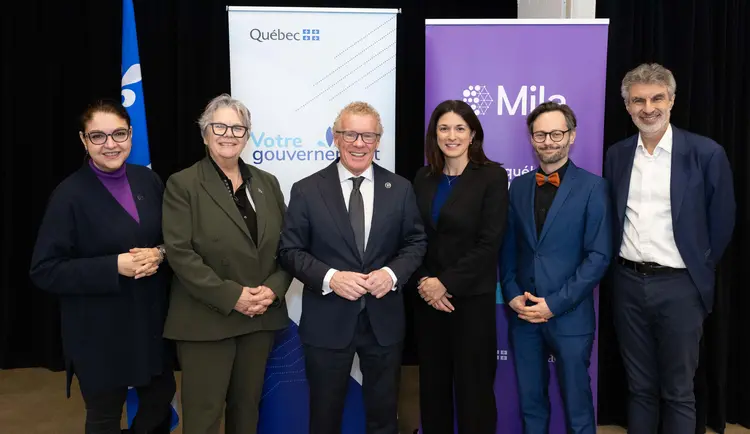
MONTREAL, QC – October 13, 2021 – Mila, the Quebec AI Institute, today announced a partnership with ServiceNow to accelerate fundamental and applied research that will pave the way for ServiceNow to build the world’s most intelligent platform for digital business.
Following the acquisition of Element AI in January 2021, ServiceNow deepens its commitment to create an AI Innovation Hub in Canada to accelerate the future of work enabled by research, expanding the AI center of excellence footprint already established in the United States and India. Partnering with Mila in Montreal reinforces ServiceNow’s commitment to the Canadian market, which has long been a leader in AI research and represents one of the world’s most significant hubs for AI talent and innovation.
"Montreal is the epicenter of the AI community, in particular thanks to the high-level researchers and talent pool who work there," said ServiceNow Chief AI Officer Vijay Narayanan. "Partnering with Mila creates tremendous opportunity to bridge the demands of industry and support for academia, providing the research community with Enterprise AI experience.”
ServiceNow’s vast experience across enterprise use cases has been the foundation for developing a robust ServiceNow language model for enterprises, which in simple terms will allow the ServiceNow platform to understand end-user requests with the correct context. For example, when an employee uses the ServiceNow virtual agent chatbot to ask for information about returning to work during COVID-restricted openings. This experience will help AI researchers and developers accelerate innovation to solve Enterprise AI’s last mile problem.
"I am delighted that Mila and ServiceNow are partnering to advance research that has the potential to impact millions of ServiceNow users,” said professor Yoshua Bengio, founder and scientific director of Mila. “ServiceNow has been attracted to Montreal in large part because of the city’s leadership in world-class AI research. The increased collaboration between the company’s high-quality scientists and Mila will further strengthen this leadership. I see this as an exciting opportunity for Mila’s researchers to collaborate on research that is grounded in a very real industrial context.”





